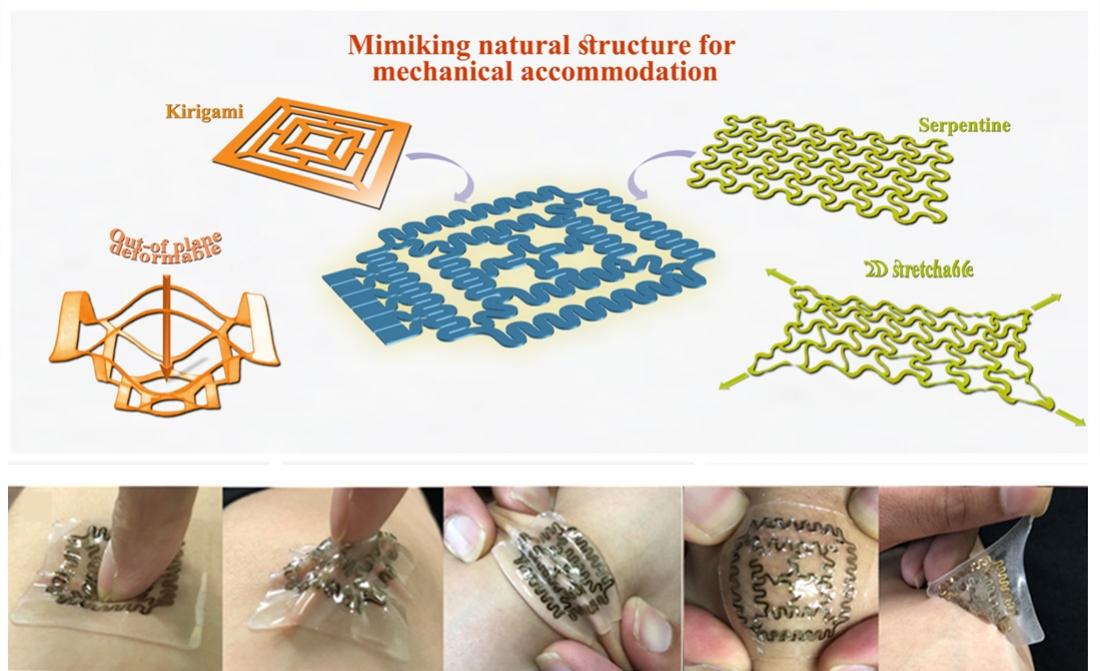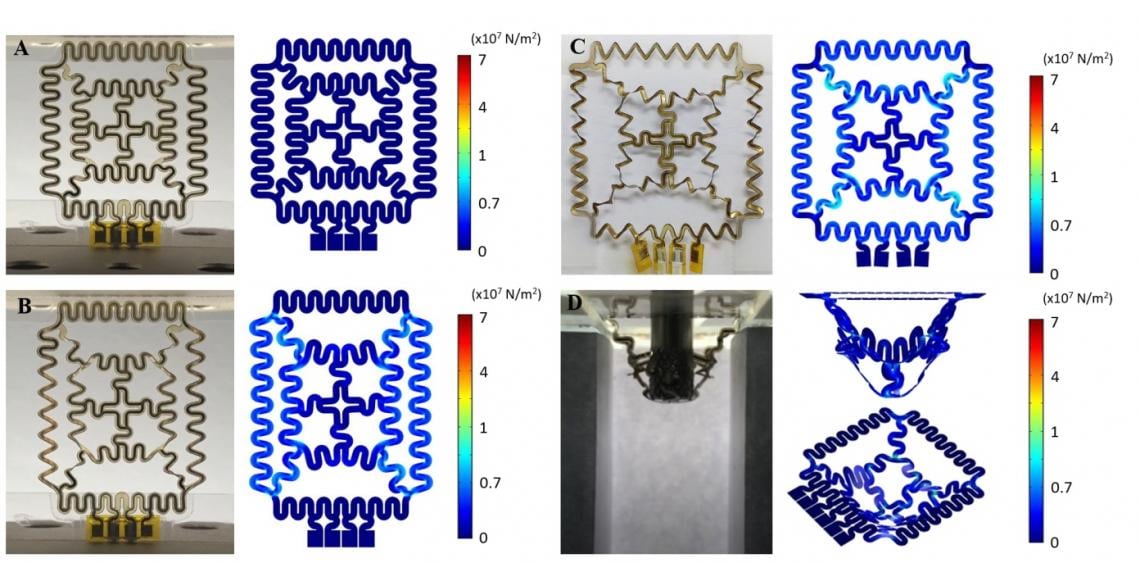A smart wearable real-time diagnosis sensor applying complex nature-mimicking structure
Professor Hyuk-Jun Kwon in the Department of Information and Communication Engineering
DGIST announced that Professor Hyuk-Jun Kwon in the Department of Information and Communication Engineering developed a ‘patch-based health diagnosis sensor system’ that is easily attached to skin with Professor Sunkook Kim’s research team at Sungkyunkwan University. This sensor is attached to skin as if attaching band-aid and collects various health information in real-time by monitoring biosignals and certain movements, drawing huge expectations for diverse applications.
Research on wearable healthcare devices has been actively conducted with the well-being era. However, product developments have faced many difficulties due to barriers in collecting biometric information such as body movements, sweats, and secretions. Professor Kwon's team focused on developing sensors that can collect stable biometric data from various situations including intense workouts and emergencies.
As a result, the research team has successfully developed precise structures for daily life using laser and increased the stability of sensor that collects biometric information. Inspired by the crooked movements of snakes and spider webs, Professor Kwon's team created a stable structure for sensors to operate without damage despite huge body movements. Moreover, the team greatly improved the vertical elasticity of the sensors by applying the zigzag paper craft structure, so that sensors endure intense body movements.
The patch-based sensor developed this time was made of a biometric-friendly waterproof material, thus improving the difficulties in acquiring accurate information due to the skin-attachment problem. In addition, the sensor can also be connected to smartphone using Bluetooth, so biometric data can be saved to a cloud server 24/7. This will enable making timely response to various emergencies such as infants, young children, and elders living alone who are need care as well as soldiers and firefighters who are constantly exposed to dangerous environments.
Professor Kwon said that “The key for this sensor development was securing structural stability and skin adhesion that can endure very intensive physical movements. The sensor is very useful because as long as it is attached to skin like a band-aid, it can collect various biodata information. It is expected to be applied to observe and monitor animal and livestock diseases as well in the future.”
This research was published on the online version of IEEE (Transaction on Industrial Electronics), a world-renowned international journal in electrical and electronic engineering.
*********************************
Professor Hyuk-Jun Kwon in the Department of Information and Communication Engineering at DGIST earned his bachelor’s degree in Mechanical Engineering from Korea University, master’s degree in mechanical engineering (MEMS) from KAIST, and a PhD in mechanical engineering (nanoscience/engineering) from UC Berkeley, CA, USA. Prior to joining the Department of Information and Communication Engineering in 2017 as an assistant professor, Dr. Kwon was a process engineer for CTD at Lam Research Institute in the U.S., postdoctoral LTL researcher at UC Berkeley, and a researcher at Display Lab of Samsung Advanced Institute of Technology. Dr. Kwon is specialized in convergence research of mechanical engineering based on semiconductor device, micro-processing, solid, and thermal engineering which he has researched for more than 10 years. Other threads of research include the next generation display, printed electronics processing, and semiconductor processing, as well as applications to next generation flexible electronic devices which integrate laser processing with 2D materials. Through this, Dr. Kwon has published more than 30 papers on top-level SCI(E) journals such as Advanced Functional Materials, Nano Letters, ACS Applied Materials Interfaces, Nano Research, Carbon, and Applied Physics Letters as well as registered 25 patents. His awards include: the Best Poster Award from 2013 MRS Fall Conference, Gold Prize from Korean Information Display Society in 2013, Contribution Award from Samsung Electronics in 2010, Best Graduation Thesis Award and Best Research Award at KAIST in 2009, Bronze Prize in Preceding Research Division of Campus Patent Universiade in 2009, and the Best Award from the 2009 Invention Contest.
For more information, contact:
Hyuk-Jun Kwon, Assistant Professor
Department of Information and Communication Engineering
Daegu Gyeongbuk Institute of Science and Technology (DGIST)
E-mail: [email protected]
Associated Links
Research Paper in Journal of IEEE Transactions on Industrial Electronics
https://ieeexplore.ieee.org/document/8894170
Stability in the skin environment of sensor platform applying complex nature-mimicking structure




